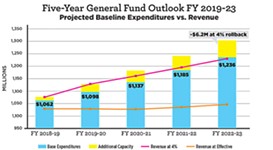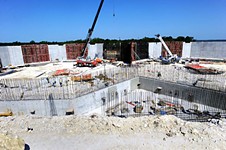Budget in Plain Sight
Council adopts a budget with the sausage prepared in public
By Wells Dunbar, Fri., Sept. 16, 2011

It was a sign of the city budget's belabored nature that relief accompanied the document's eight-hour adoption – when in years past the process had taken a ritual hour – instead of exhausting the entire three days potentially allotted for passage.
The drawn-out procedure – a departure from recent years, due largely to City Council caution over alleged Open Meetings Act violations that has drawn interoffice communication to a standstill – meant the sausage-making process was on full display. (For more on the politics of the meeting, see "City Hall Hustle.") And it offered insight into council priorities in lean times. As Mayor Pro Tem Sheryl Cole summarized the prevailing sentiment on the dais, "By and large, I think we have been drawing the line in terms of what is a social service that is going to benefit the lower income [citizens] of our community that really needs this service, and at the same time also focusing on items that are going to be good returns on investment in the long term."
Those investments came courtesy of an unexpected $1.6 million reserve, a surplus transfer from Austin Energy due to the record demand the utility's seen this summer. The bulk of the meeting was dedicated to blowing through nearly 30 amendments from council, with budget staff keeping a running total of how much cash was left after each.
Parks and police were the day's biggest winners: Add-backs were made to keep both the Dottie Jordan Recreation Center and Austin Recreation Center open as city-run facilities instead of moving to a public-private partnership or shuttering them altogether. And Bill Spelman's call to spend smarter on policing gained limited traction. His plan to dip below the city's 2-officers-per-1,000-residents ratio – to 1.98-officers-per-1,000-residents – by hiring 31 new cops instead of 47 and spending the savings on drug treatment and other police specialists drew heated discussion and ultimately failed. Mayor Lee Leffingwell pushed back adamantly, invoking the specter of 9/11, the Central Texas wildfires, and his own experience as a military and commercial airline pilot. Ultimately, Spelman's call to increase substance abuse treatment funding and a study of police patrol effectiveness were both adopted, although all with money from the AE reserve and without touching the public safety budget as initially proposed.
Waterwise, the utility's embattled "sustainability fee" – rechristened a "revenue stability fee" – was also scaled back from an initial $6 a month to $4.40, while the utility's rates will see a 3.5% systemwide increase; the flat fee, which won't be implemented until later this year, will be further studied by council to see if it's too high or too low and whether a higher fee should be imposed on heavier users. Also, council approved increases for Austin Energy, although the utility is completing its rate case study, with precise rates to be established next year and continuing debate over the "cost of service" structures for residential, commercial, and industrial users.
Finally, the overall property tax rate came in at 48.11 cents per $100 valuation, an increase less than the maximum allowable without a special "rollback" election (48.32 cents). Repeatedly citing the need for a lower tax rate, Leffingwell was the sole holdout on several 6-1 votes. "There's a method to my madness," he said in the meeting. "I'm not gonna support a tax rate beyond what's proposed."
Add-Backs
• Keeping Dottie Jordan Recreation Center open and city-run: $39,726
• Keeping Austin Recreation Center open and city-run (includes presumed lost rental revenues): $349,712
• Parks and Recreation Department full-time staff position (neighborhood matching, "sweat equity" program): $59,878
• Co-sponsorship of West Austin Youth Association: $82,000
• Police patrol utilization study: $100,000
• Two EMS positions (assist with 911/ER "frequent flyers"): $194,287
• Six months' additional funding for the Center for Child Protection: $135,259
• Materials for branch libraries: $160,000
• Library security: $88,164
• Six months' additional funding for Austin Travis County Integral Care substance abuse treatment program: $261,000
• One full-time position with the Music Department: $60,000
Not Making the Cut
• Restoring full operation of PARD's supervised summer playground program (from 10 back to 27 locations)
• Additional funding for Austin Travis County Integral Care
• Crime statistician, three crime scene techs, and two crime analysts (to be paid for through fewer patrol officers)
• Maintaining current hours at Faulk Central Library (66 hours/week vs. 58 hours/week)
Got something to say on the subject? Send a letter to the editor.












